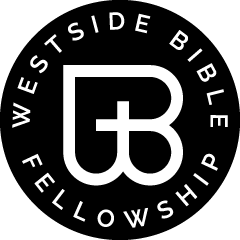
BILLY GRAHAM'S CONTROVERSIAL MINISTRY
By John Piper
Fundamentalism
In Greenville, South Carolina, where I grew up, there is a university across the highway from where I lived called Bob Jones University. It is big (perhaps five-thousand students, maybe). It is a very strong, influential fundamentalist institution. That is a word that they love and would use.
My dad was happy to call himself a fundamentalist. Lots of people would call me a fundamentalist. What a fundamentalist is historically is not only someone who embraces all the fundamentals of the faith, but has a doctrine of separation and defense of the faith that is fairly militant.
George Dollar wrote a history of fundamentalism called A History of Fundamentalism in America. The cover of the book was a Bible with a fist on it. The subtitle was "A Militant Defense of the Historic Faith" or something like that. It stood for a sense of being willing to fight — “go to the mat” — and separate from people who are not truly faithful. That marked historic fundamentalism and it does so to this day.
Frankly, I have a high level of respect for that approach towards Christianity and would only differ from it in some degrees of how we deal with culture and how we handle certain disagreements.
Resigning
My father went to school there. He was one of those fundamentalists. He loved that school and cherished what he got from it.
In 1957, a dispute arose between Billy Graham and his crusade strategies and methods on the one side and the fundamentalists on the other side. The fundamentalists thought he was compromising the gospel by the way he was supported by liberal people in his crusades.
That controversy came to a head and my father, who was on the board at Bob Jones, had to make a choice of whether he would remain on the board with the school he loved and side with those who were saying Billy Graham’s crusades were sub-Christian or of the devil or whether he would leave.
In the end, he felt like he needed to resign, and he did. All the rest of my growing-up life — I was eleven then — all the rest of my life then was under the shadow of that disagreement.
It broke my dad’s heart. To my great gladness there was a sweet reconciliation between him and some of the leaders at Bob Jones in the 1980s. My dad died in a nursing home owned by Bob Jones University. So, symbolically, he came full circle.
New York Crusade
The issue came to a head in 1957 because of the New York crusade. The New York crusade was historic. It was phenomenal. Billy Graham went there. I am not sure how long he was planning to be there, but he wound up preaching every night for sixteen weeks.
That is an unprecedented evangelist! That is four months in Madison Square Garden. Jesus Christ was being lifted up to a full house! The problem is Billy wanted as many people to say yes and support him as would be willing.
There were people who supported him and even sat on the platform who were clearly liberal. They didn’t believe the doctrines he believed. That was felt to be a profound contradiction of faithfulness to the gospel by some. Billy always said that he would go anywhere and preach under any circumstances if he was allowed to say what he wanted to say.
A Work of God
So I have really sad memories about that disruption between my father and the school and fundamentalism in general over that issue. But I am really happy with the decision that my father made. I think he made the right decision.
In other words, I think it is possible to disapprove. My father did disapprove with Bob Jones that some of Billy Graham’s strategies were not wise.
He said to them in correspondence that I have read that he agreed he would not do it this way. But he said he could not say Billy Grahams’s crusades are of the devil. He said he couldn’t write off the work of God. “I can’t say that God is not moving here,” he said. “I can’t withdraw my support from Billy’s gospel efforts for these disagreements.”
Life Shaping
How influential was this episode in your life — this conflict between Billy Graham and Bob Jones and your father’s hard decision — how influential was this in how you personally think through which conferences you will speak at now?
You know, I don’t know the answer to that. I don’t know the causality of a lot of the convictions that I have. I think it would be honoring to my father and probably faithful to history to say that what we experienced growing up was really significant.
It had almost subconscious effects that showed themselves thirty years later so that I find myself today being very much at home with my father’s preaching. In fact, I was listening to my father preach just two days ago. My wife and I had our anniversary. We did not go to church.
We were way up in the mountains at a bed and breakfast, and we said, “Let’s have our own little church here.” We couldn’t get Internet, so we couldn’t listen to any of my living, favorite preachers. So I listened to one of my dead, favorite preachers; namely, my dad.
I have a whole bunch of his sermons on my computer. As I was listening to him, I said, “I love this guy. I love what he preaches.”
I don’t doubt that his approach to this controversy was influential on me. I can go into a conference and not like the music or the slapstick that is happening on the platform. I can go in and not like all the things that the other speakers are saying. But I will still go because they are going to let me talk to a lot of people here about the supremacy of God in all things for the joy of all peoples through Jesus. That is what I am called to do.
So probably my approach to being willing to lift up my vision of God in places where it might not be completely shared has been influenced by my father’s choices.
This article is a transcript of an audio interview with John Piper. Listen to the interview here.
John Piper is founder and teacher of Desiring God and chancellor of Bethlehem College and Seminary. For 33 years, he served as pastor of Bethlehem Baptist Church, Minneapolis, Minnesota. He is author of more than 50 books.
